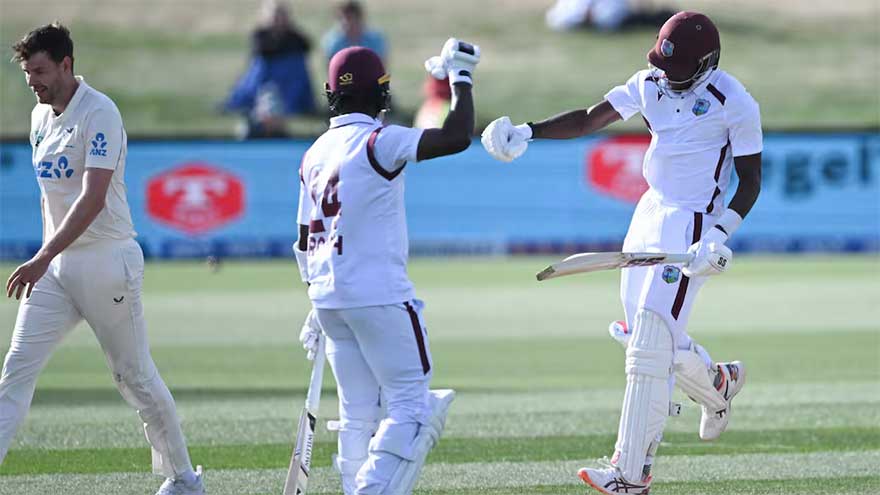(Web Desk) – Justin Greaves made an unbeaten 202 in a 230-run partnership with Kemar Roach as the West Indies won an endurance contest against a threadbare New Zealand attack Saturday to draw the first test after…

(Web Desk) – Justin Greaves made an unbeaten 202 in a 230-run partnership with Kemar Roach as the West Indies won an endurance contest against a threadbare New Zealand attack Saturday to draw the first test after…